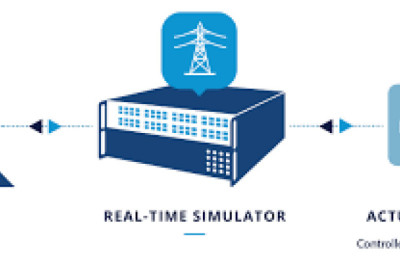views
Introduction to Network Attached Storage and Its Relevance in 2024
In the fast-paced world of technology, efficient data management has become more critical than ever. Enter Network Attached Storage (NAS)—a solution that has steadily evolved to meet the growing demands of both personal users and large enterprises. But what is network attached storage, and why is it so relevant in 2024?
Network Attached Storage (NAS) refers to a storage device connected to a network, allowing multiple users and heterogeneous client devices to retrieve data from centralized disk capacity. This form of data storage is increasingly crucial as businesses and individuals generate unprecedented amounts of data daily. In this blog post, we'll explore what is network attached storage, how NAS technology has evolved, its benefits, real-world applications, and where it's headed in the future.
The Evolution of NAS
Initially, NAS was primarily designed for personal use, offering simple file storage and media streaming capabilities. As technology advanced, so did NAS solutions, evolving to cater to small businesses and eventually large enterprises. Modern NAS devices now come equipped with advanced features such as data redundancy, encryption, automated backups, and even virtualization support.
- Personal NAS Solutions
Personal NAS devices typically offer user-friendly interfaces and are easy to set up. They are perfect for home users who need to store photos, videos, and documents securely while still being easily accessible. Popular brands like Synology, QNAP, and Western Digital have made significant strides in this market segment, offering affordable yet robust solutions.
- SMB and Enterprise NAS Solutions
For small to medium-sized businesses (SMBs) and large enterprises, NAS solutions have become far more sophisticated. These devices now support large volumes of data, high-speed access, and advanced security features. Enterprise NAS solutions often include multiple bays for hard drives, support for RAID configurations, and advanced management software. They are designed to handle heavy workloads and provide high availability, making them ideal for critical business applications.
Benefits of NAS in Modern Data Management for Businesses
The implementation of NAS devices in business environments offers a plethora of benefits that extend beyond basic data storage. Here are some of the key advantages:
- Centralized Data Management
Centralized data storage simplifies data management by consolidating files onto a single device, making it easier to control and maintain. This centralization is particularly beneficial for businesses with multiple departments or remote offices.
- Enhanced Collaboration
NAS devices enable seamless file sharing across the network, facilitating collaboration among team members. With features like file versioning and access controls, employees can work together more efficiently while ensuring data integrity.
- Improved Data Security
Modern NAS solutions come equipped with robust security features such as encryption, user authentication, and automated backups. These features help protect sensitive information from unauthorized access and data loss.
- Scalability
As a business grows, so do its data storage needs. NAS devices offer scalability options, allowing businesses to expand their storage capacity by adding more drives or upgrading to higher-capacity models.
Case Studies
- Case Study 1: Media Production Company
A media production company needed a robust storage solution to handle large volumes of high-resolution video files. By implementing a NAS solution with multiple high-capacity drives and RAID 6 configuration, they achieved high-speed access and data redundancy. The centralized storage system streamlined their workflow, allowing multiple editors to access and work on projects simultaneously.
- Case Study 2: Legal Firm
A legal firm required a secure and reliable storage solution to manage sensitive client information and case files. They opted for a NAS device with built-in encryption and automated backups. The NAS solution provided a secure environment for storing confidential data, ensuring compliance with industry regulations.
- Case Study 3: Educational Institution
An educational institution needed a scalable storage solution to accommodate growing data from research projects, student records, and administrative files. By deploying a NAS system, they achieved centralized data management, improved collaboration among faculty members, and scalable storage capacity to meet future needs.
Future of NAS Technology
As we look ahead to 2024 and beyond, several trends and advancements are expected to shape the future of NAS technology:
- Increased Integration with Cloud Services
Hybrid storage solutions that combine NAS with cloud services will become more prevalent. This integration will offer businesses the best of both worlds—local storage for high-speed access and cloud storage for scalability and offsite backups.
- AI and Machine Learning
NAS devices will increasingly incorporate AI and machine learning capabilities to optimize performance, predict failures, and enhance data security. These intelligent features will provide businesses with valuable insights and proactive management tools.
- Edge Computing
With the rise of edge computing, NAS devices will play a crucial role in processing and storing data closer to the source. This trend will reduce latency and bandwidth usage, making scale out NAS an integral part of edge computing architectures.
- Enhanced Security Features
As cyber threats continue to evolve, NAS devices will incorporate more advanced security features such as AI-driven threat detection, zero-trust architecture, and blockchain-based data integrity.
Tips for Choosing the Right NAS Solution for Your Business
Selecting the right NAS solution is crucial for maximizing the benefits of this technology. Here are some tips to guide your decision-making process:
- Assess Your Storage Needs
Determine the volume of data you need to store, the required access speed, and the level of redundancy you need. This assessment will help you choose a NAS device with the appropriate capacity and features.
- Consider Scalability
Choose a NAS solution that can grow with your business. Look for devices that offer expansion options, such as additional drive bays or support for higher-capacity drives.
- Evaluate Security Features
Security should be a top priority when selecting a NAS device. Ensure the solution you choose offers robust security features such as encryption, user authentication, and automated backups.
- Check Compatibility
Ensure that the NAS device is compatible with your existing network infrastructure and operating systems. Compatibility issues can lead to integration challenges and reduced efficiency.
Conclusion
In conclusion, Network Attached Storage (NAS) has evolved into a critical component of modern data management, offering numerous benefits for businesses of all sizes. From centralized data management and enhanced collaboration to improved security and scalability, NAS solutions provide the tools needed to thrive in today's data-driven world.
As we look to the future, the continued integration of AI, machine learning, and edge computing will further enhance the capabilities of NAS devices, making them even more indispensable. By carefully selecting the right NAS solution for your business, you can harness the full potential of this technology and stay ahead of the competition.











